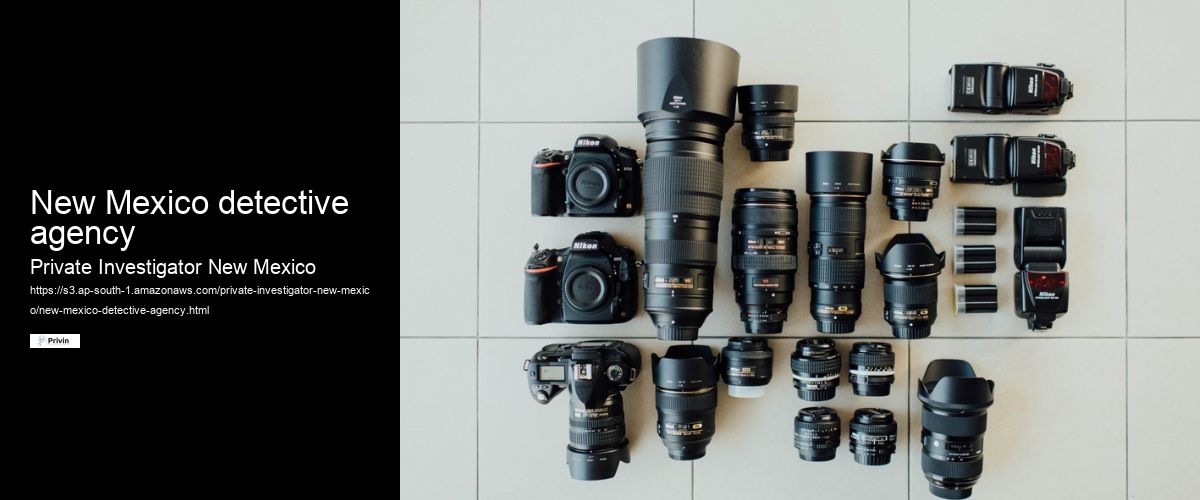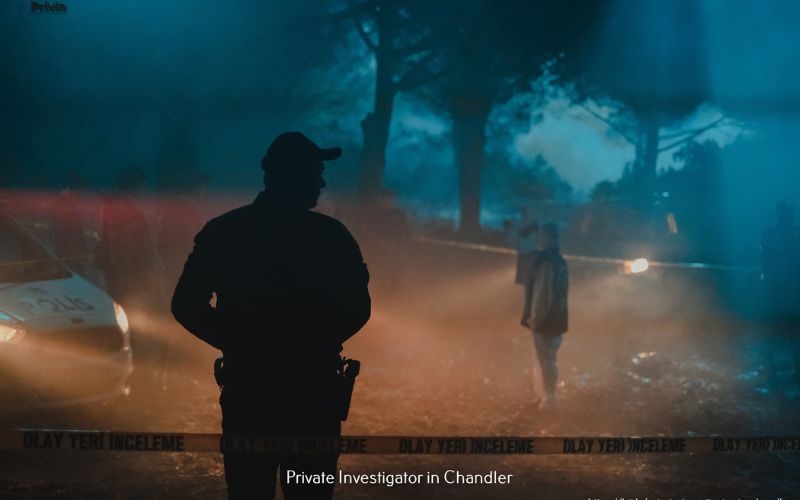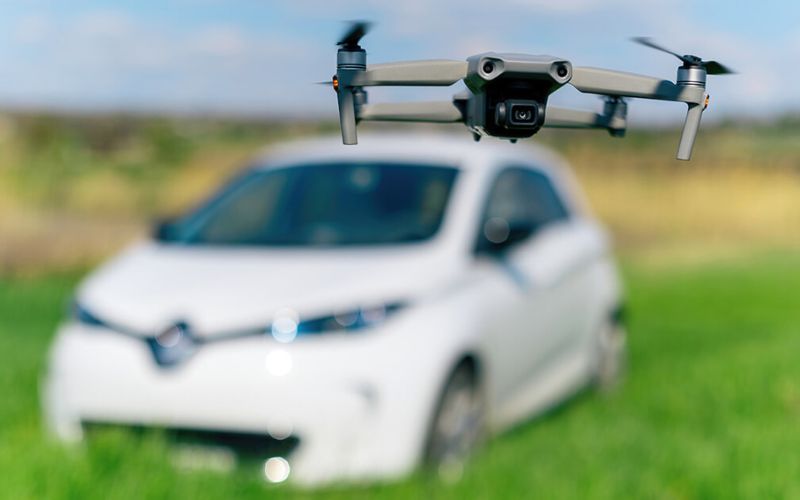
Interviews and interrogations are essential investigative techniques used by private investigators to extract information from individuals. Private investigators possess effective communication and interpersonal skills, allowing them to conduct interviews professionally and tactfully. They employ active listening techniques to gather relevant information and ask probing questions to elicit truthful responses. Private investigators may also conduct interrogations when dealing with uncooperative or potentially deceptive subjects, using techniques to uncover the truth and obtain valuable insights.
Surveillance is a crucial tool in the arsenal of a private investigator. They employ various surveillance methods and use specialized equipment to discreetly observe and document activities. Private investigators may use binoculars, cameras, video recorders, and audio surveillance devices to collect evidence. They may also utilize advanced technology, such as drones or hidden cameras, to conduct surveillance from a distance or in challenging environments. Maintaining a covert presence and adhering to legal and ethical guidelines are crucial aspects of effective surveillance operations.
In the digital age, private investigators must possess skills in computer and digital forensics. They are trained to retrieve and analyze digital evidence from computers, mobile devices, and other digital storage media. Private investigators use specialized software tools to recover deleted files, examine internet browsing history, trace email communications, and identify digital footprints left by individuals. Digital forensics allows them to uncover crucial information, identify online activities, and provide digital evidence in legal cases.
Private investigators may employ GPS tracking and monitoring devices to track the movements and activities of individuals or vehicles. GPS trackers can be discreetly attached to a target's vehicle, allowing investigators to monitor their whereabouts in real-time. These devices provide valuable information, particularly in cases involving surveillance, infidelity investigations, or monitoring the activities of individuals under investigation. Private investigators must comply with legal regulations regarding the use of tracking devices to ensure the admissibility of evidence.
Private investigators may resort to undercover operations to gather information in sensitive or challenging cases. They may assume false identities and adopt disguises to blend into various environments and gather information discreetly. Undercover operations require meticulous planning, attention to detail, and the ability to maintain cover without arousing suspicion. Private investigators employ acting skills, disguise techniques, and surveillance methods to carry out undercover assignments effectively and obtain valuable information while protecting their true identities.
Private investigators utilize a range of investigative techniques and tools to gather information, uncover the truth, and support their clients' needs. Their proficiency in these methods, along with their experience and expertise, allows them to conduct thorough and comprehensive investigations in a variety of situations.
Location: New Mexico is located in the southwestern part of the United States, bordered by Texas to the east, Arizona to the west, Colorado to the north, and Mexico to the south.
Capital and Largest City: The capital of New Mexico is Santa Fe, which is known for its rich history, vibrant arts scene, and distinctive adobe architecture. The largest city in the state is Albuquerque, which offers a mix of modern amenities and cultural attractions.
Landscapes: New Mexico is renowned for its diverse and breathtaking landscapes. It is home to the Sangre de Cristo Mountains, the Rio Grande, desert landscapes like the White Sands National Park, and picturesque natural attractions such as Carlsbad Caverns National Park.
Climate: New Mexico experiences a semi-arid climate, with hot summers and relatively mild winters. It is known for its abundant sunshine, making it an ideal destination for outdoor activities and stargazing.
Cultural Heritage: New Mexico has a rich cultural heritage influenced by Native American, Hispanic, and Western traditions. The state is known for its vibrant art scene, Native American pueblos, traditional adobe architecture, and annual events like the Albuquerque International Balloon Fiesta.
Cuisine: New Mexican cuisine is famous for its flavorful and spicy dishes. Green and red chili peppers are staples in many traditional dishes such as enchiladas, chile rellenos, and posole. Don't miss the chance to try the local cuisine during your visit!
Outdoor Activities: New Mexico offers numerous outdoor activities for nature enthusiasts. You can explore hiking and biking trails, go skiing in the winter months, enjoy water sports on the Rio Grande, or go camping and stargazing in the state's designated dark sky parks.
Historical Sites: New Mexico has a rich history, with many historical sites and landmarks. Visit places like the Taos Pueblo, a UNESCO World Heritage site, the historic Old Town Albuquerque, and the historic Route 66, which runs through the state.
Festivals and Events: New Mexico hosts a variety of cultural festivals and events throughout the year. The most famous is the Albuquerque International Balloon Fiesta, where hundreds of hot air balloons take to the skies. The Santa Fe Indian Market and the Roswell UFO Festival are also popular attractions.
Local Hospitality: New Mexicans are known for their warm hospitality and friendly nature. Don't hesitate to strike up conversations with locals, as they can offer valuable insights and recommendations for exploring the state.
Private investigators operate within a legal framework that governs their activities. The specific laws and regulations surrounding private investigations may vary depending on the jurisdiction, but some common aspects include:
Licensing: Many jurisdictions require private investigators to obtain a license to practice. These licenses often involve meeting specific qualifications, undergoing background checks, and adhering to certain ethical standards.
Privacy Laws: Private investigators must comply with privacy laws to protect the rights of individuals. This includes obtaining proper consent for surveillance, respecting boundaries, and handling sensitive personal information responsibly.
Surveillance Laws: Laws regarding surveillance activities may vary by jurisdiction. Private investigators must be knowledgeable about the legality of conducting surveillance, obtaining evidence, and adhering to specific requirements such as obtaining consent or following proper procedures for wiretapping or recording conversations.
Data Protection Laws: Private investigators must handle personal data in accordance with data protection laws. This includes safeguarding client information, ensuring secure data storage, and following guidelines on data retention and disposal.
Private investigators deal with sensitive and confidential information as part of their investigations. They have a professional and legal responsibility to maintain strict confidentiality and respect the privacy rights of individuals involved in their cases. Private investigators must handle information with discretion, store data securely, and only share information on a need-to-know basis with their clients or relevant authorities. Violating privacy or breaching confidentiality can have serious legal and ethical consequences.
Private investigators must collect evidence in a manner that ensures its admissibility in legal proceedings. They must follow proper protocols, adhere to chain of custody requirements, and document their investigative activities meticulously. Private investigators must be aware of the rules of evidence in their jurisdiction to ensure that the evidence they gather is admissible in court. They may work closely with attorneys to ensure that the evidence collected meets legal standards and can be presented effectively during trials or other legal proceedings.
Private investigators are expected to adhere to a professional code of conduct and maintain high ethical standards in their work. This includes:
Integrity: Private investigators must act with honesty, integrity, and fairness in all their professional dealings. They should provide accurate and unbiased information to their clients, avoiding any conflicts of interest.

Respect for the Law: Private investigators must operate within the bounds of the law. They should not engage in illegal activities or violate individuals' rights during their investigations.
Objectivity: Private investigators should approach their work objectively, avoiding personal biases or judgments that may influence the outcome of their investigations. They must gather and present evidence objectively and truthfully.
Confidentiality: Private investigators must maintain strict confidentiality regarding their clients, cases, and the information they gather. They should only disclose information to authorized individuals and in accordance with legal requirements.
Professionalism: Private investigators should conduct themselves in a professional manner at all times. This includes maintaining appropriate attire, communicating effectively, and treating all parties involved with respect and professionalism.
Adhering to legal regulations and ethical guidelines is essential for private investigators to maintain their credibility, protect the rights of individuals, and ensure the integrity of their investigations. Operating within the boundaries of the law and upholding ethical standards are fundamental aspects of the private investigator profession.
Private investigators often encounter challenging or potentially dangerous situations during their investigations. They may come across individuals who are uncooperative, hostile, or even violent. In cases involving criminal activities or high-stakes investigations, private investigators may face threats to their personal safety. Dealing with difficult or dangerous situations requires a combination of situational awareness, effective communication skills, and the ability to make quick decisions to ensure personal safety and the successful completion of the investigation.

Yes, hiring a private investigator is legal. It is a common practice for individuals, businesses, and legal entities to seek the services of private investigators to obtain information and evidence for various purposes.
While private investigators strive to provide the best possible outcomes, they cannot guarantee specific results. The nature of investigations involves various factors that are beyond their control. However, professional investigators will work diligently to gather information and evidence to assist their clients in achieving their objectives.
Yes, private investigations are conducted with utmost confidentiality. Private investigators are bound by professional ethics to maintain the privacy and confidentiality of their clients and the information obtained during the investigation.